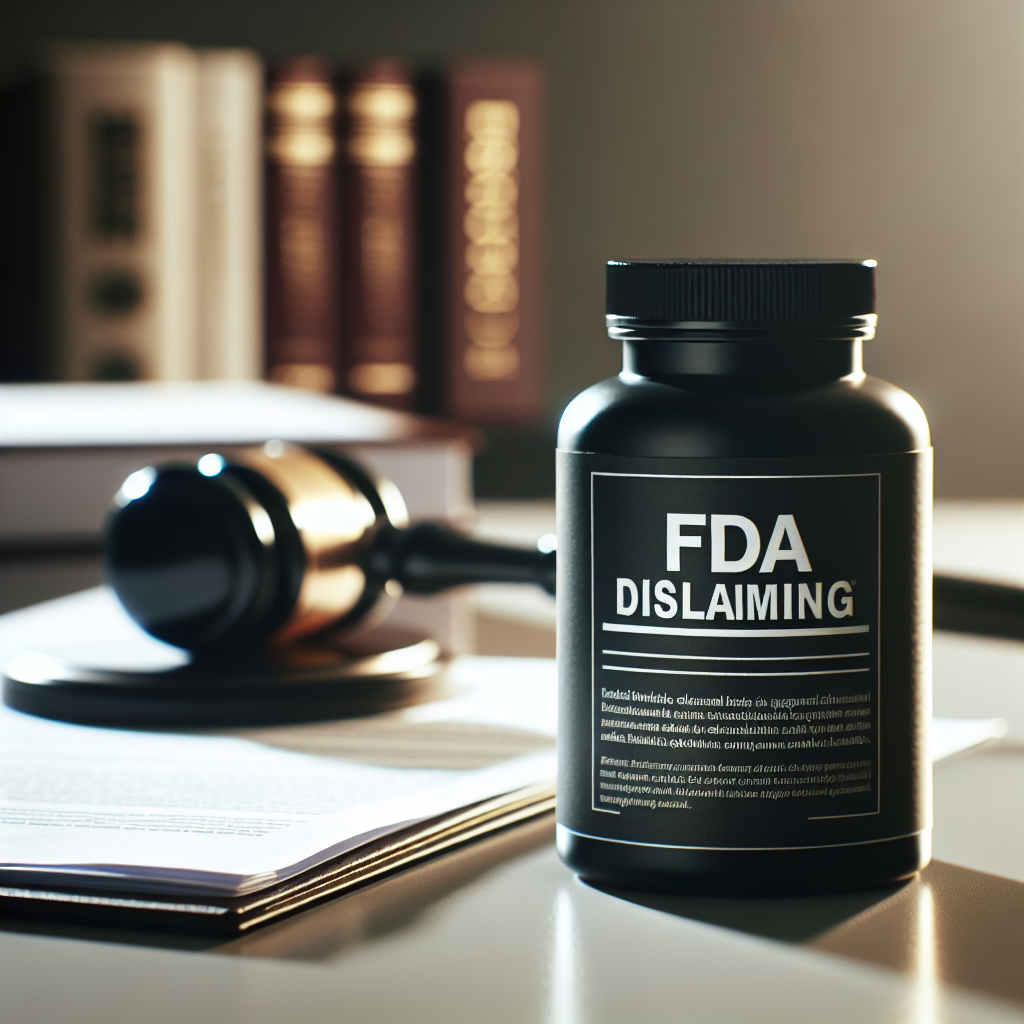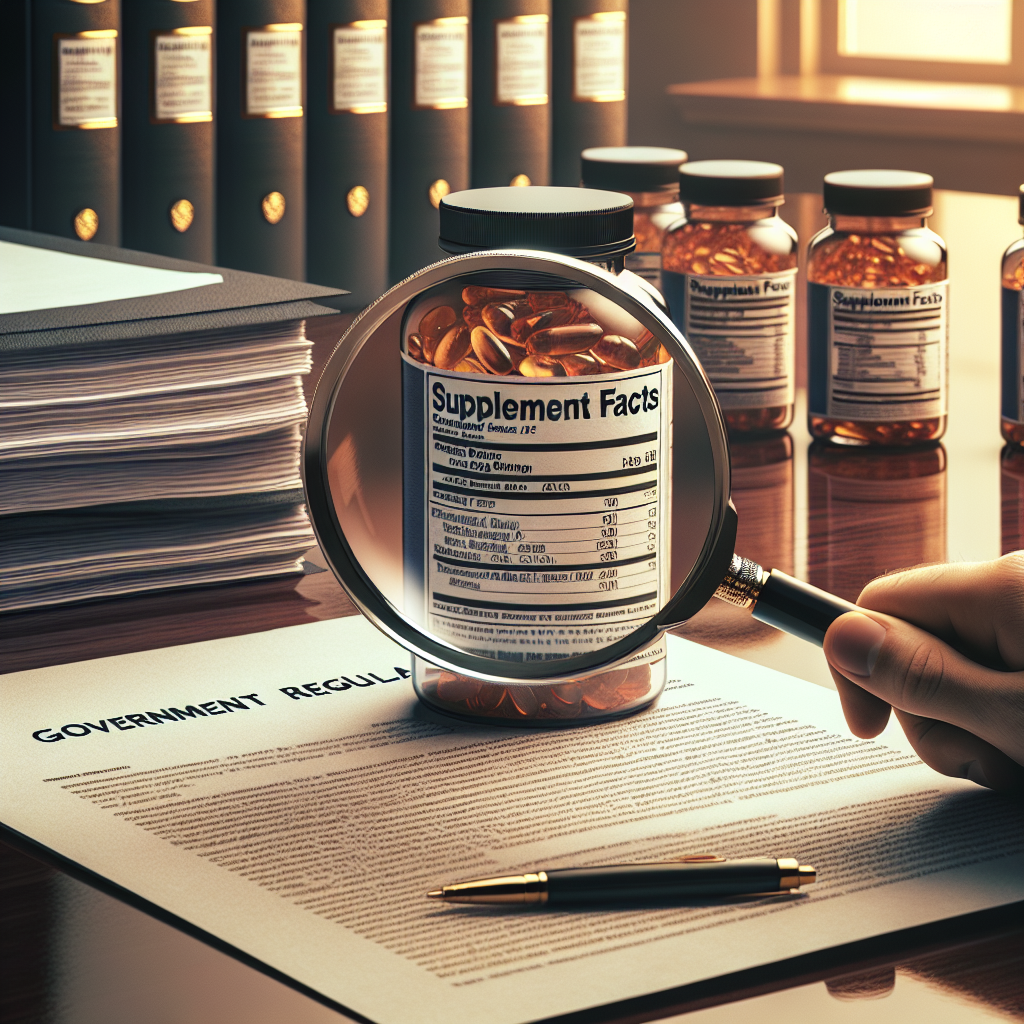In today’s health-conscious marketplace, dietary supplements have emerged as a cornerstone of personal wellness strategies. From vitamins and minerals to amino acids and herbal extracts, consumers are increasingly turning to supplements to fill nutritional gaps and support specific health goals. However, for manufacturers in this booming industry, success isn’t just about creating effective formulations—it’s about navigating the complex regulatory landscape established by the Food and Drug Administration (FDA).
The dietary supplement industry has experienced remarkable growth, with global sales projected to exceed $230 billion by 2027. This expansion brings both opportunities and responsibilities for manufacturers who must understand and adhere to strict regulatory guidelines. Creating a comprehensive list of supplements and their uses requires more than just cataloging ingredients—it demands a thorough understanding of how these products can be legally marketed within FDA parameters.
Understanding FDA’s Role in Supplement Regulation
The FDA’s approach to dietary supplements differs significantly from its regulation of conventional foods and pharmaceutical drugs. Under the Dietary Supplement Health and Education Act (DSHEA) of 1994, supplements occupy a unique regulatory category that balances consumer access with safety considerations.
Unlike drugs, dietary supplements don’t require FDA pre-approval before reaching the market. However, manufacturers bear the responsibility of ensuring their products are safe and properly labeled. This regulatory framework allows for innovation while establishing crucial guardrails for consumer protection—a balance that aligns perfectly with NutraAeon’s commitment to quality and transparency in the nutritional ingredients space.
The FDA’s oversight primarily focuses on:
- Monitoring safety after products enter the market
- Evaluating ingredient safety
- Regulating manufacturing practices
- Reviewing product labeling and claims
- Addressing misleading marketing
For companies developing a list of supplements and their uses, understanding these regulatory boundaries is essential. The FDA expects manufacturers to have scientific evidence substantiating any claims made, even if this evidence isn’t submitted for pre-approval. NutraAeon supports this approach by providing partners with comprehensive documentation and certificates of analysis that help substantiate product claims.
FDA Labeling Guidelines: Getting it Right the First Time
Proper labeling stands as one of the FDA’s primary concerns regarding dietary supplements. When creating a list of supplements and their uses for consumers or marketing materials, manufacturers must adhere to specific labeling requirements that promote transparency and prevent deception.
Every supplement label must include:
- A descriptive name stating that the product is a “dietary supplement” (or similar term)
- Complete list of ingredients with quantities
- Total content quantity
- Manufacturer, packer, or distributor name and address
- Directions for use
- Supplement Facts panel
When it comes to making claims about supplements and their uses, the FDA recognizes three distinct categories:
Health Claims: These establish a relationship between a nutrient or ingredient and reduced risk of disease. Health claims require significant scientific agreement or qualified health claim authorization from the FDA. For example, “Calcium may reduce the risk of osteoporosis.”
Nutrient Content Claims: These characterize the level of a nutrient in a product using terms like “high,” “excellent source,” or “low.” The FDA has established specific thresholds for each term. A product labeled “high in vitamin C” must contain at least 20% of the Daily Value per serving.
Structure/Function Claims: These describe how an ingredient affects the structure or function of the body without referencing disease. For instance, “Vitamin D supports bone health” or “Zinc contributes to immune function.” These claims don’t require FDA pre-approval but must be truthful and not misleading.
When developing a comprehensive list of supplements and their uses, manufacturers must carefully categorize their claims to ensure compliance. NutraAeon assists partners by providing technical expertise and regulatory guidance that helps navigate these complex requirements while maintaining marketing effectiveness.
The Critical Importance of FDA Disclaimers
For many supplement manufacturers creating product lists detailing supplements and their uses, structure/function claims offer the most flexibility. However, these claims come with an important caveat: they must be accompanied by a specific FDA disclaimer.
This disclaimer must state: “This statement has not been evaluated by the Food and Drug Administration. This product is not intended to diagnose, treat, cure, or prevent any disease.”
This disclaimer serves multiple purposes:
- It clearly communicates to consumers that the FDA has not verified the claims
- It distinguishes supplements from drugs, which can legally claim to treat diseases
- It protects consumers from potentially misleading information
- It provides legal protection for manufacturers making legitimate structure/function claims
The disclaimer must appear on the same display panel as the structure/function claim and be set off in a box. The font size must be at least 1/16th of an inch in height, ensuring visibility to consumers.
NutraAeon’s commitment to transparency aligns perfectly with these requirements. By providing full supply chain visibility and comprehensive documentation, NutraAeon enables manufacturers to make truthful claims about their products while maintaining regulatory compliance. This approach builds consumer trust—an invaluable asset in today’s competitive marketplace.
When Compliance Falls Short: Consequences of FDA Violations
Creating an accurate list of supplements and their uses isn’t just about marketing effectiveness—it’s about legal protection. The consequences of non-compliance with FDA regulations can be severe and far-reaching, affecting everything from a company’s bottom line to its long-term reputation.
The FDA employs a range of enforcement tools when it identifies violations:
Warning Letters: Often the first formal action, these letters identify violations and request corrective measures within a specified timeframe. While not legally binding themselves, they signal potential future enforcement if issues remain unaddressed.
Product Seizures: The FDA has authority to physically remove non-compliant products from the marketplace, resulting in significant financial losses and supply chain disruptions.
Mandatory Recalls: In cases where products pose serious health risks, the FDA can force companies to recall products, a process that generates negative publicity and damages consumer confidence.
Injunctions: Court orders can halt manufacturing or distribution until compliance issues are resolved, potentially shutting down operations for extended periods.
Criminal Prosecution: In cases of fraud or deliberate misbranding, company executives may face criminal charges, including fines and imprisonment.
Beyond these formal penalties, non-compliance brings market consequences. A 2022 survey found that 87% of consumers would stop purchasing from a brand associated with regulatory violations. Rebuilding trust after such incidents requires significant time and resources.
NutraAeon helps partners avoid these pitfalls by maintaining rigorous quality control standards that exceed FDA expectations. By ensuring ingredients meet or surpass USP specifications, NutraAeon provides manufacturers with the foundation for creating compliant product listings that accurately describe supplements and their uses.
Leveraging FDA Guidance Documents for Compliance Success
Navigating FDA regulations doesn’t mean manufacturers must journey alone. The FDA regularly publishes guidance documents that provide valuable insights into the agency’s current thinking on regulatory topics. These resources, while not legally binding, offer practical pathways to compliance.
Key guidance documents that help manufacturers develop accurate lists of supplements and their uses include these official FDA resources:
- “Dietary Supplements: New Dietary Ingredient Notifications and Related Issues”
- “Substantiation for Dietary Supplement Claims Made Under Section 403(r)(6) of the Federal Food, Drug, and Cosmetic Act”
- “Small Entity Compliance Guide on Structure/Function Claims”
These documents clarify expectations around:
- Evidence required to substantiate claims
- Acceptable phrasing for structure/function statements
- Required disclaimer formatting
- Documentation practices
Using these guidance documents, manufacturers can develop compliant marketing materials that accurately describe supplements and their uses while avoiding regulatory pitfalls. This approach aligns perfectly with NutraAeon’s philosophy of empowerment through technical expertise and regulatory guidance.
NutraAeon assists partners by staying abreast of regulatory developments and translating complex requirements into actionable strategies. This collaborative approach helps manufacturers navigate the FDA maze while focusing on their core business—creating exceptional health products.
Building Trust Through Compliance: The Path Forward
Creating a comprehensive list of supplements and their uses while maintaining FDA compliance isn’t simply a regulatory obligation—it’s a powerful tool for building consumer trust. In an era where transparency drives purchasing decisions, compliant marketing practices demonstrate a commitment to ethical business conduct.
For supplement manufacturers, the path to compliance requires:
- Investment in regulatory expertise: Either through internal teams or partnerships with knowledgeable suppliers like NutraAeon
- Rigorous quality control: Ensuring ingredients meet specifications and final products deliver as promised
- Evidence-based claims: Maintaining scientific substantiation for all marketing statements
- Transparent communication: Clearly distinguishing between approved health claims and structure/function statements
- Regular compliance audits: Proactively identifying and addressing potential issues
NutraAeon serves as a global nutritional ingredients partner that supports manufacturers throughout this journey. By providing premium-quality raw materials backed by comprehensive documentation, NutraAeon empowers manufacturers to create products that not only meet regulatory standards but exceed consumer expectations.
The supplement industry continues to evolve, with new ingredients and applications emerging regularly. Successfully navigating this dynamic landscape requires both scientific expertise and regulatory awareness. When manufacturers partner with trusted suppliers committed to quality, transparency, and empowerment, they gain more than ingredients—they gain the foundation for compliant, effective communication about supplements and their uses.
In the end, FDA compliance isn’t just about avoiding penalties—it’s about building a sustainable business that earns and maintains consumer trust through honest, accurate information. By embracing these principles, manufacturers can successfully navigate the FDA maze while bringing valuable wellness solutions to an increasingly health-conscious marketplace.


